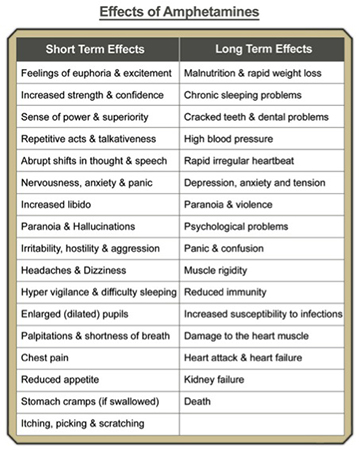 Preface
Preface
This article is a basic introduction to drug addiction. Experimenting, abusing and addiction to drugs are not the same and should not be viewed and acted upon in the same manner. The recent tragedy from the FMFA appeared to be an unfortunate consequence of experimenting and possibly abusing drugs of abuse.
Introduction
To begin, the term ‘drug addiction’ involves two issues or two items which may not necessarily be correlated. The first is a drug, which is defined as a chemical agent that affects biological function in humans or other animals. There are a number of chemical agents which can be considered either legal or illegal. Addiction on the other hand, is a condition which involves certain characteristics such as a strong desire to take the drug, difficulty in controlling its use and associated problems as a result of taking and using the aforementioned drug. Those addicted to drugs by definition suffer from a medical illness which is both psychological in terms of its compulsion and physical in terms of the health consequences. Taking a drug without having these characteristics does not fit into the definition of being addicted to the drug, instead, it is known as experimenting with a drug. Experimenting can lead to abusing drugs which may cause drug addiction.
How does one become addicted to drugs?
Drugs of abuse often lead to a feeling of euphoria or excitement, often associated with a positive feeling or sensation and can make a person have an increased sense of energy. Drugs which have the opposite effect such as depressed mood and lethargy are less likely abused.
Drugs that are often taken and abused usually lead to the release of dopamine, a neurotransmitter (chemical in the brain) which is believed to allow us to “feel good”. Dopamine acts at the limbic system of the brain which houses the pleasure centre, that area which makes us feel happy. The limbic system is a more primitive part of our brain and functions to ensure survival or that “animal part” in all of us.
Humans release dopamine without drugs through pleasurable activities such as eating, recreation and even sex. As a result, we often seek to repeat these same activities to release more of this dopamine. Drugs of abuse ‘hijack’ this system by releasing dopamine ‘exogenously’ i.e. released by a mere ingestion or use of the drug. For some, this initial abuse can become an addiction. The drug of abuse is often desired very strongly until normal daily activities are neglected. As a result, more time is spent in trying to get the drug. As the brain becomes more accustomed to the ‘dose’ of the drug, more of the drug is needed to ensure the same level of pleasurable feeling as the initial use. Eventually this excessive time spent on drug seeking leads to destruction through breakdown of social circles such as family and friends, and lead to bodily harm such as poor diet or risky drug use such as injecting. When under the influence of drugs, other risk can happen such as injuries, unprotected sexual relations and life-threatening accidents.

Source: addictionjournal.net
Why do people get addicted?
Some individuals are thought to be at higher risk for addiction due to hereditary reasons. This however, only explains about 50% of cases. More commonly, individuals with hereditary risk have a positive family history of addiction in the family. What has elucidated scientist is the identification of the addictive gene. At present it is thought that addiction is a complex genetic disorder, involving both genetics and the environment. It cannot be stressed that an environment where drug use is rampant increases the risk of use and subsequent addiction. A classic example for this is nicotine addiction, whereby smokers often report cases of parents or close friends as smokers. Alcohol use is another example. The use of certain drugs can also cause addiction due to brain changes at the molecular level. This is thought to occur with amphetamine type addiction which leads to not only a burst of dopamine from dopamine producing cells, but eventually leads to the death of those same cells. As a result, constant use of the drug is required to enable the user to have some semblance of ‘normal’ mood.
What happens next?
As a result, addiction essentially leads to compulsive behaviour. The brain is a dynamic structure that can become accustomed to high levels of dopamine. It is therefore inadvertently primed for more dopamine, leading to the concept of the “hungry brain”. The limbic system is also closely located to the memory centre. As drug use is often taken for a positive experience or to alleviate a negative experience one, the use of drugs is often linked to that experience allowing certain situations, experiences or objects to act as cues for continued drug use. Cues also make it increasingly difficult to stop. Those who do succeed in stopping regularly report a chronic situation of relapse.
Stopping also becomes difficult due to withdrawal symptoms. Both physical and psychological withdrawals are reported and differ depending on the class of drugs used. Where physical withdrawal may be short, i.e. up to years in some cases, psychological withdrawal or also known as craving, can last for years. Craving is a sudden intense desire for the drug and it can happen anytime.
To conclude, the take home message is prevention is better than cure. Experimentation can lead to abuse, which may increase the risk of addiction. If you think you may be suffering from drug addiction, seek help. The sooner you seek help, the better it is.

Acknowledgement
This article is written with the recent tragedy of the FMFA music festival in mind. The author would like to take this opportunity to express his condolences to the family, friends and those who may have known the youths who lost their lives from the tragic incident.
Dr. Amer Siddiq Amer Nordin is a senior lecturer with the Department of Psychological Medicine, at a local university. He is also a consultant psychiatrist (Addiction Medicine) and certified smoking cessation specialist and trainer. Among his administrative duties include being the coordinator for the Nicotine Addiction research group of University Malaya Centre for Addiction Sciences (UMCAS). He is also pursuing his PhD at the National Addiction Centre, University of Otago, Christchurch in New Zealand.
[This article belongs to The Malaysian Medical Gazette. Any republication (online or offline) without written permission from The Malaysian Medical Gazette is prohibited.]
References:
- Teesson M; Hall W; Proudfoot H; Degenhardt LJ, 2012, Addictions, 2nd edition, Psychology Press Ltd, East Essex, UK
- Sellman, D. (2010). The 10 most important things known about addiction.Addiction, 105(1), 6-13.

Hello doc, is being delusional and aggresive due to drug addiction considered a psychiatric illness? If so, is there any medication or treatment? ( ruling out rehab )
Dear Jane
Thank you for the comment and apologies for the delay. I had answered the query but for some reason it went missing.
Firstly, drug dependence is considered a mental health condition and a medical condition. Drug dependence may lead to symptoms mentioned ie. delusions, illusions, overvalued ideas for example and can also cause aggression. They can be either the drug effect and therefore go away after the drug is removed from the system or withdrawn, or the effects can be the consequence of using i.e more permanent consequences like taking amphetamines which is known to kill brain cells and lead to damage noticed to others as psychosis. There are medications to assist with these symptoms both used short and long term depending on the extent of the drug use. It would be best to seek an appointment with us or your trusted GP to be assessed prior to any treatment being offered. For a psychiatrist, the names and numbers are listed in the Malaysian Psychiatric Association website. I hope that helps.
Amer
salam doc amer,
i’ve been on narcotic pain killers since 2006 namely df118, demerol, oxycontin, oxynorm, morphine, etc for my prolapse cervical spine (mva) & adhesion colic (colon removal). tried few nsaid (celebrex, arcoxia etc) but to no avail & sadly i am more opioids tolerance. nsaid does gave me nasty peptic ulcer & i do heard that patients get sudden stroke & cardiac arrest due to prolonged nsaid usage. i do realised that opioid tend to give unexplained euphoric feelings & vivid dream. my major concern was how high is the possibilities one could develop into addiction or dependency towards those meds. i scared that one day i would take oxy for a regular headache…